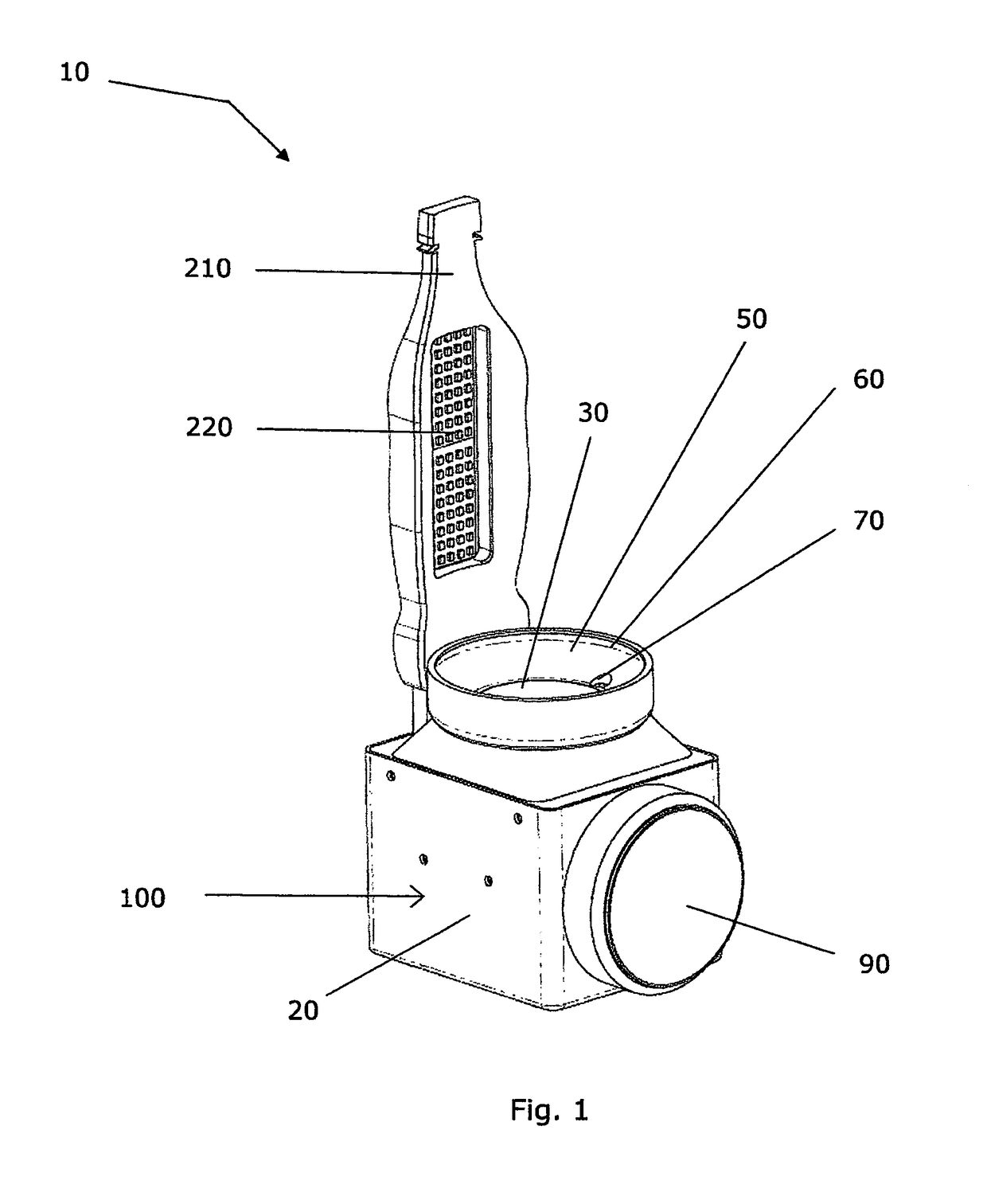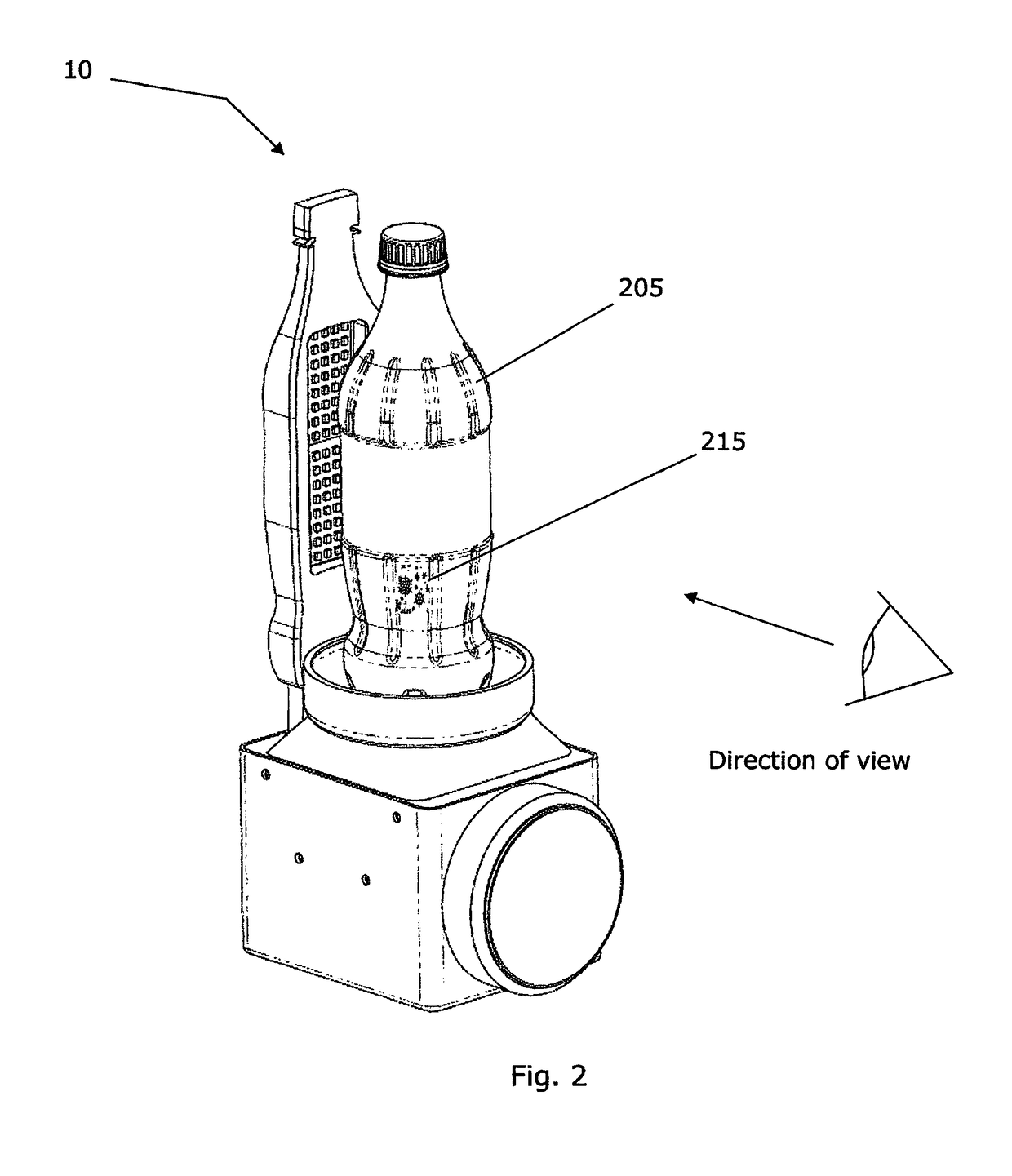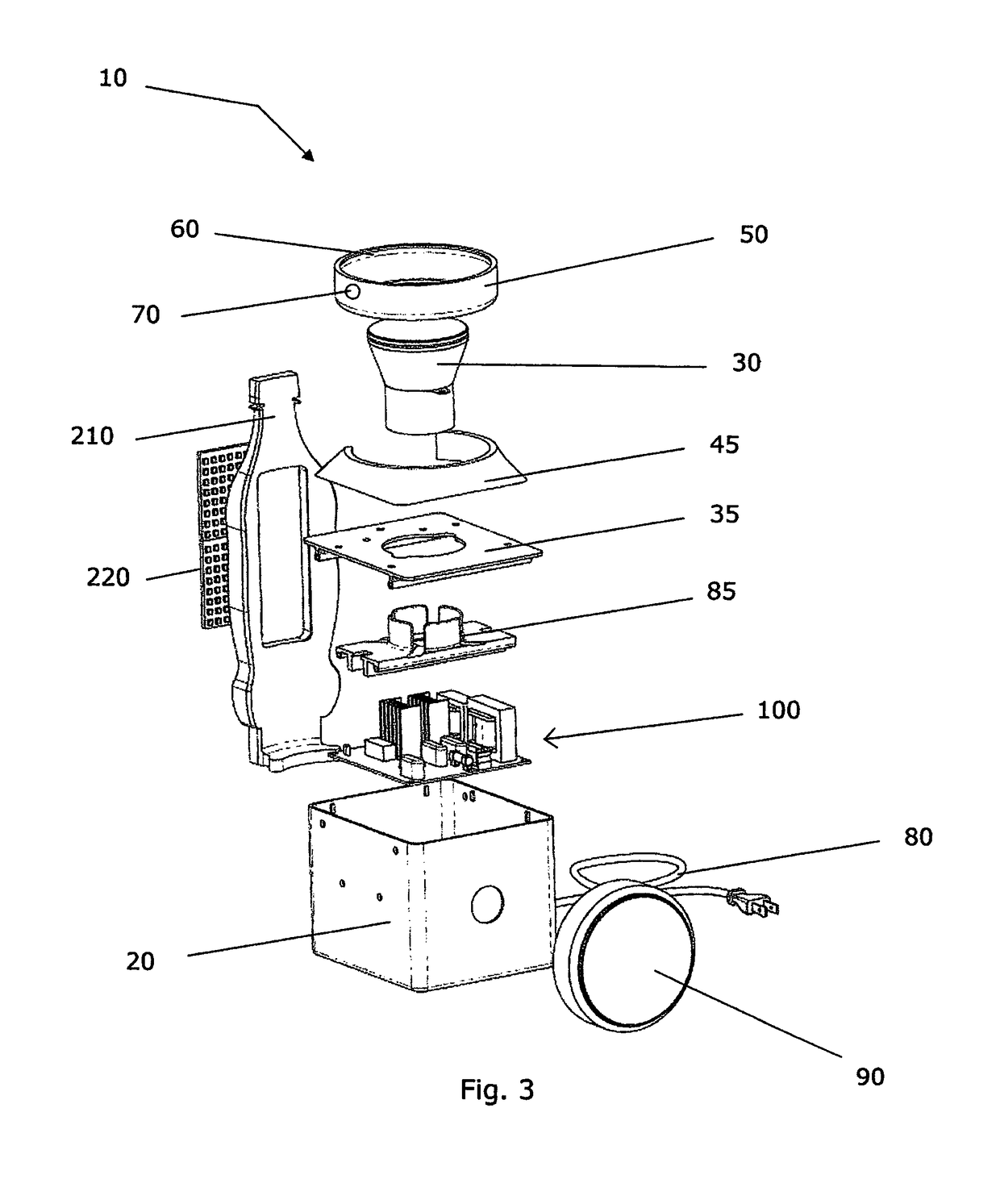Supercooled beverage crystallization slush device with illumination
a crystallization device and beverage technology, applied in frozen sweets, food science, applications, etc., can solve the problems of inability to know or control the precise result of temperate, inability to chill beverages placed in ice, and difficulty in sprinkling loose salt, etc., to achieve rapid crystallization effects
- Summary
- Abstract
- Description
- Claims
- Application Information
AI Technical Summary
Benefits of technology
Problems solved by technology
Method used
Image
Examples
second embodiment
[0056]A list of components will now be described.[0057]10 device for crystallizing liquid to form slush inside of supercooled to below 32 F closed beverage bottles or cans with illumination source[0058]20 stand (base)[0059]30 ultrasonic transducer[0060]35 Top cover for base[0061]45 neck cover for ultrasonic transducer[0062]50 bowl for bottle[0063]60 thin membrane transmission membrane over transmission medium (liquid, water, gel)[0064]70 fill nozzle[0065]80 power source such as power cord with plug to 120 volt power supply or internal batteries[0066]85 mounting bridge and force sensitive resistor (pressure switch)[0067]90 push button switch[0068]100 schematic of electronic components[0069]101 pressure switch (85)[0070]102 Arduino or IC (integrated circuit) smart board electronics[0071]103 Ready LED to indicate button may be pushed[0072]104 D / C (direct current) relay[0073]105 beverage bottle illumination source (220)[0074]106 push button switch(s) (90)[0075]107 solid state relay[0076...
first embodiment
[0111]FIG. 1 is an upper front left perspective view of a device 10 for crystallizing liquid to form slush inside chilled bottles with an illumination source 220. FIG. 2 is another perspective view of the device 10 of FIG. 1 with a bottle mounted 205 on the device 10.
[0112]FIG. 3 is an exploded view of the device 10 of FIG. 1.
[0113]FIG. 4 is another perspective view of the device 10 of FIG. 1 with optional rotation capability.
[0114]FIG. 5 is a schematic of the electronic components 100 for the device 10 of FIG. 1.
[0115]Referring to FIGS. 1, 3 and 5, a device 10 for crystallizing liquid to form slush inside of a supercooled to at least below approximately 30 F closed beverage bottles or cans, can include a stand 20 which is a small base, such as a rectangular box or cube, having a housing formed from plastic or metal, for housing electronic components 100 inside. In front of the base 20 can be an activation switch 90 such as a large push button switch, and the like.
[0116]The stand 20...
third embodiment
[0177]FIG. 8 is an upper front left perspective view of a third embodiment device 310 for crystallizing liquid to form slush inside supercooled bottles with an illumination source 330. FIG. 9 is another perspective view of the device 310 for bottles of FIG. 8 with a bottle 315 mounted on the device 310. FIG. 10 is an exploded view of the device 310 of FIG. 9. FIG. 11 is another perspective view of the device 310 of FIG. 9 with bowl assembly 340 removed for cleaning.
PUM
 Login to View More
Login to View More Abstract
Description
Claims
Application Information
 Login to View More
Login to View More - R&D
- Intellectual Property
- Life Sciences
- Materials
- Tech Scout
- Unparalleled Data Quality
- Higher Quality Content
- 60% Fewer Hallucinations
Browse by: Latest US Patents, China's latest patents, Technical Efficacy Thesaurus, Application Domain, Technology Topic, Popular Technical Reports.
© 2025 PatSnap. All rights reserved.Legal|Privacy policy|Modern Slavery Act Transparency Statement|Sitemap|About US| Contact US: help@patsnap.com



